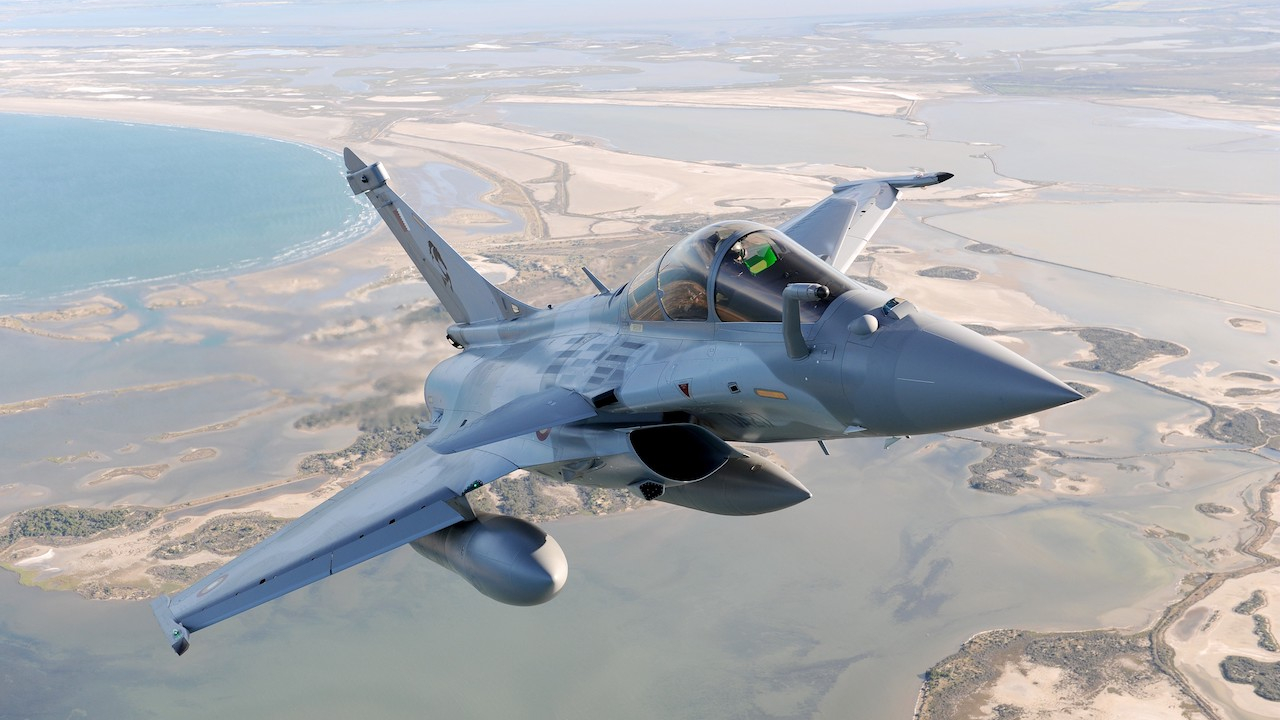Qatar in action on Libyan duties with UAE set to join at any time

Qatar is already operational and working side-by-side with the french at a Greek air base called Souda on the island of Crete. There are some 300 personnel helping to keep up twice-daily sorties in Libyan airspace against Moamer Qaddafi's forces.
The UAE has confirmed it is deploying aircraft having committed six F-16 and six Mirage fighters to help enforce the no-fly zone over Libya, despite reservations linked to unrest in Bahrain.
The bilateral cooperation between France and Qatar is nothing new as the two forces have been working together for more than 15 years since France began selling aircraft and support equipment to Qatar.
"Cooperation on the field is excellent," said French squadron commander Antoine Guillou, who is normally based in Doha and has two years of experience working with the Qatari military.
The French and Qatari command centres stand opposite each other inside the Greek base. Their members greet each other every day, each of them respectively cradling cups of French or Arab coffee.
"We had to set up a French and a Qatari village in short order," Guillou told AFP.
"This involved installing all the necessary logistics, communications systems and electronics required for the missions," he said.
Qatar was the first Arab country to join the mostly Western coalition and was also the first Arab nation to recognise the transitional National Libyan Council set up by the rebel opposition.
Five Mirage 2000 fighters are stationed in front of the French command centre and another six Qatari Mirage jets stand to their left. "The planes carrying missiles can only strike aircraft violating the no-fly zone over Libya, they are not meant to hit ground targets," said one of the French pilots. French Defence Minister Gerard Longuet, who visited the base on Wednesday, said the Arab nation's role in Libya operations was "essential."
"This is the first time that there is such a level of understanding between Europe and the Arab world," he said.
"Two French and two Qatari planes fly missions twice a day to patrol Libyan airspace," Guillou said.
In addition to Souda, NATO member Greece has made the bases of Aktion in the western mainland and Andravida in the Peloponnese available to coalition forces operating in Libya.
The base of Araxos in the Peloponnese has also been placed at the disposal of Belgian F-16 jets taking part in the campaign.
Qatar will be hosting the upcoming "contact group" meeting between Western powers and Arab countries over the Libya conflict.
Initial support from the 22-member Arab League helped convince Western powers of the need to adopt UN resolution 1973, authorizing the use of "all necessary" powers to protect civilian populations from Qaddafi 's forces.
Meanwhile the UAE is expected to begin its action this weekend. Foreign Minister Sheikh Abdullah bin Zayed al-Nahayan said "In support of UN Resolution 1973, the UAE is fully engaged with humanitarian operations in Libya and as an extension of those humanitarian operations, the UAE air force has committed six F-16 and six Mirage aircraft to participate in the patrols that will enforce the no-fly zone now established over Libya."
There is still controversy in the UAE over the country’s participation
Major General Khaled al-Buainnain, quoted in Abu Dhabi's The National newspaper, said the disagreement stemmed from the conviction of Arab states in the Gulf that Iran had stirred the troubles in Bahrain.
The general said the main reason for the UAE's reluctance over Libya was "because the Europeans and Americans in particular don't realise the amount of the threat available in Bahrain."
He pointed to what he called Washington's unsteady and shifting response to the fast-moving Arab revolts.
"Go and see the European, and especially the American attitude, toward Tunisia. How many positions in a few days?" Buainnain asked. "On Egypt, how many official statements in three, four weeks."
In Washington, a US official said yesterday that his country was "deeply appreciative" of the contribution of its UAE ally to the international campaign in Libya.
US Secretary of State Hillary Clinton said this week that Washington expected "more announcements" of Arab participation in the days ahead.
Stay up to date
Subscribe to the free Times Aerospace newsletter and receive the latest content every week. We'll never share your email address.

